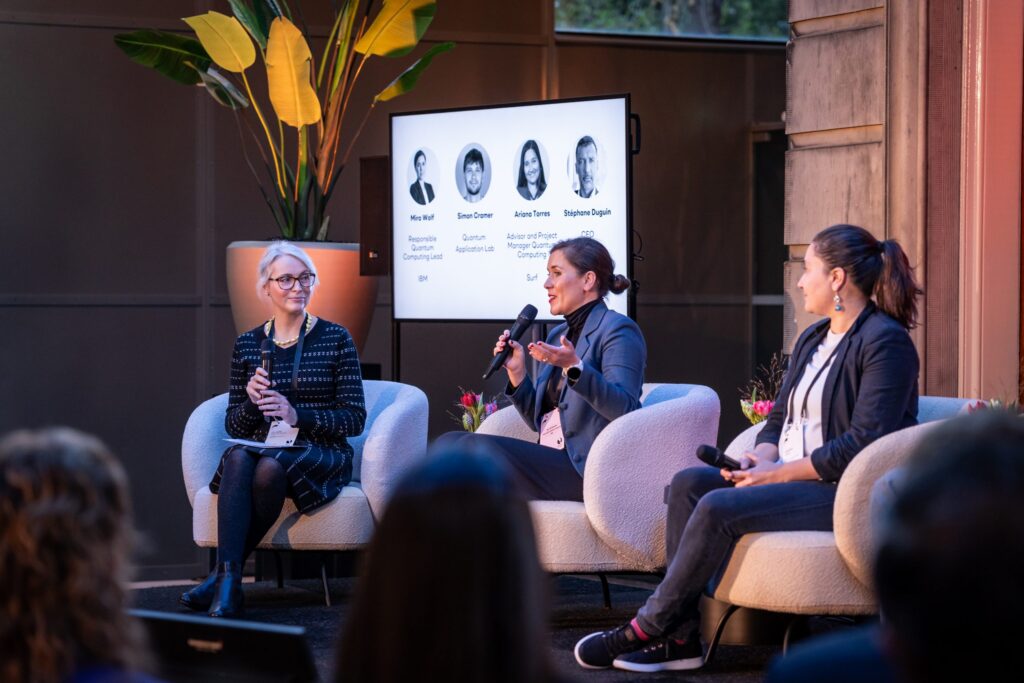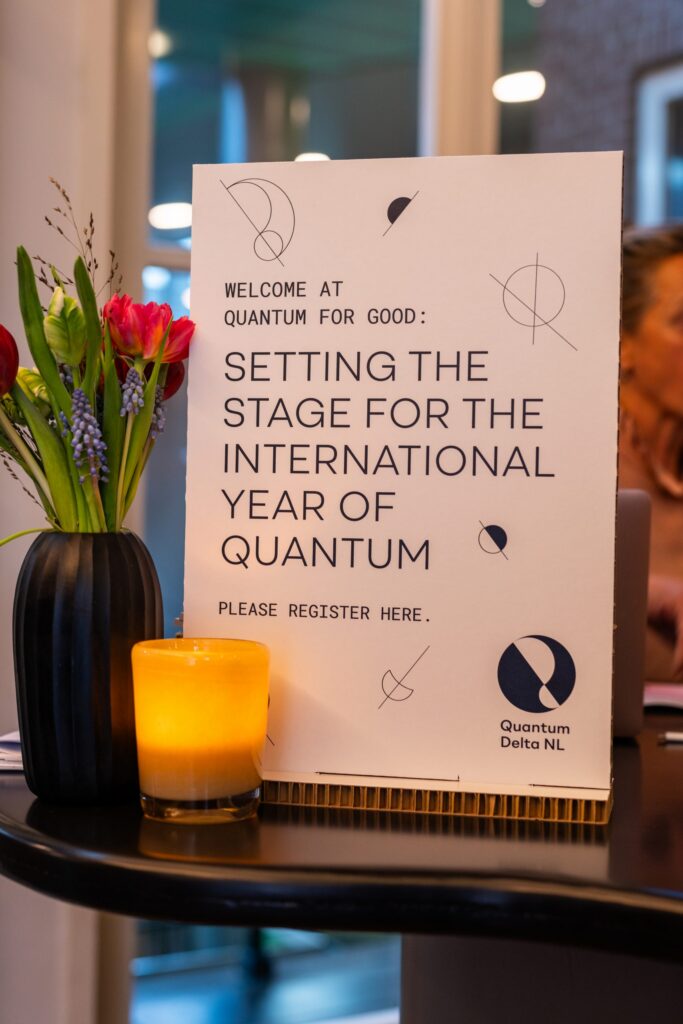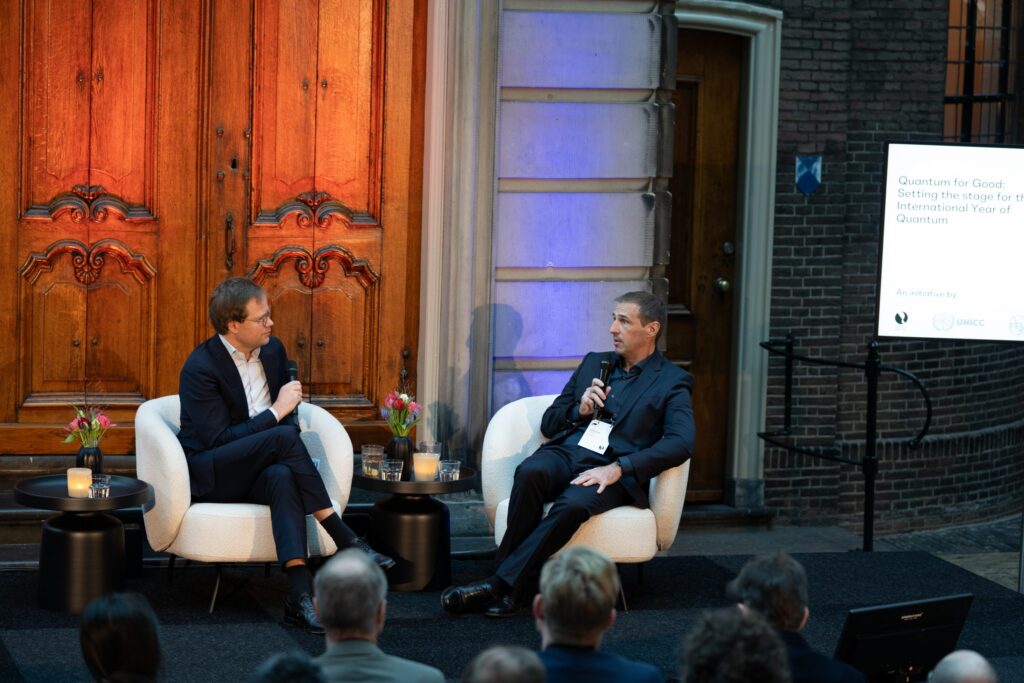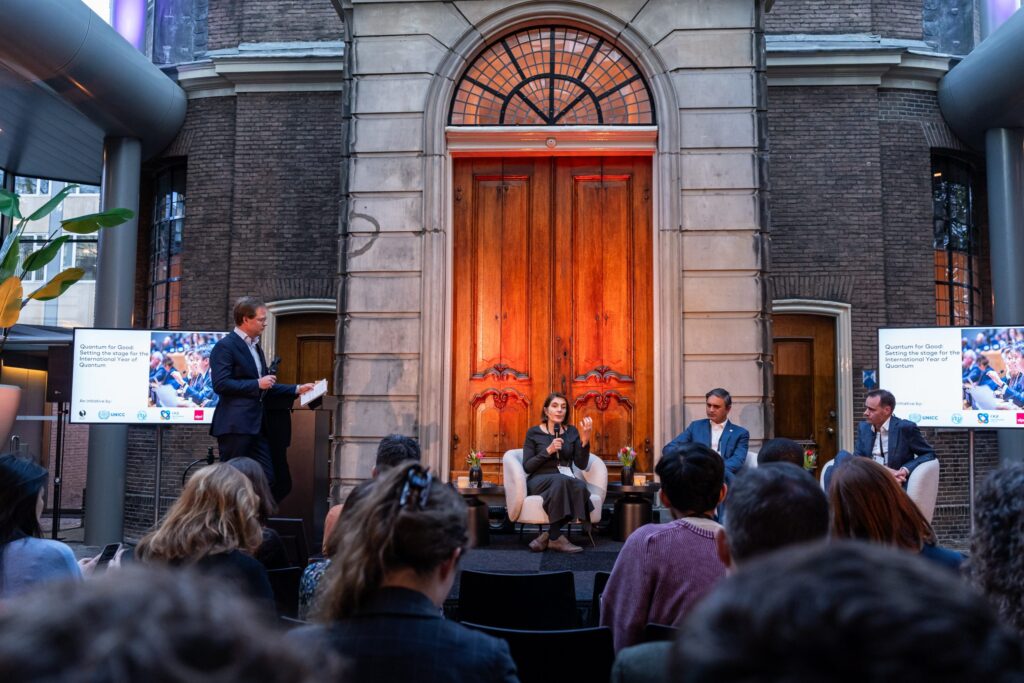OQI partners with Quantum for Good conference to explore the societal impact and future of quantum technology
2nd December 2024
Article by Alexia Yiannouli
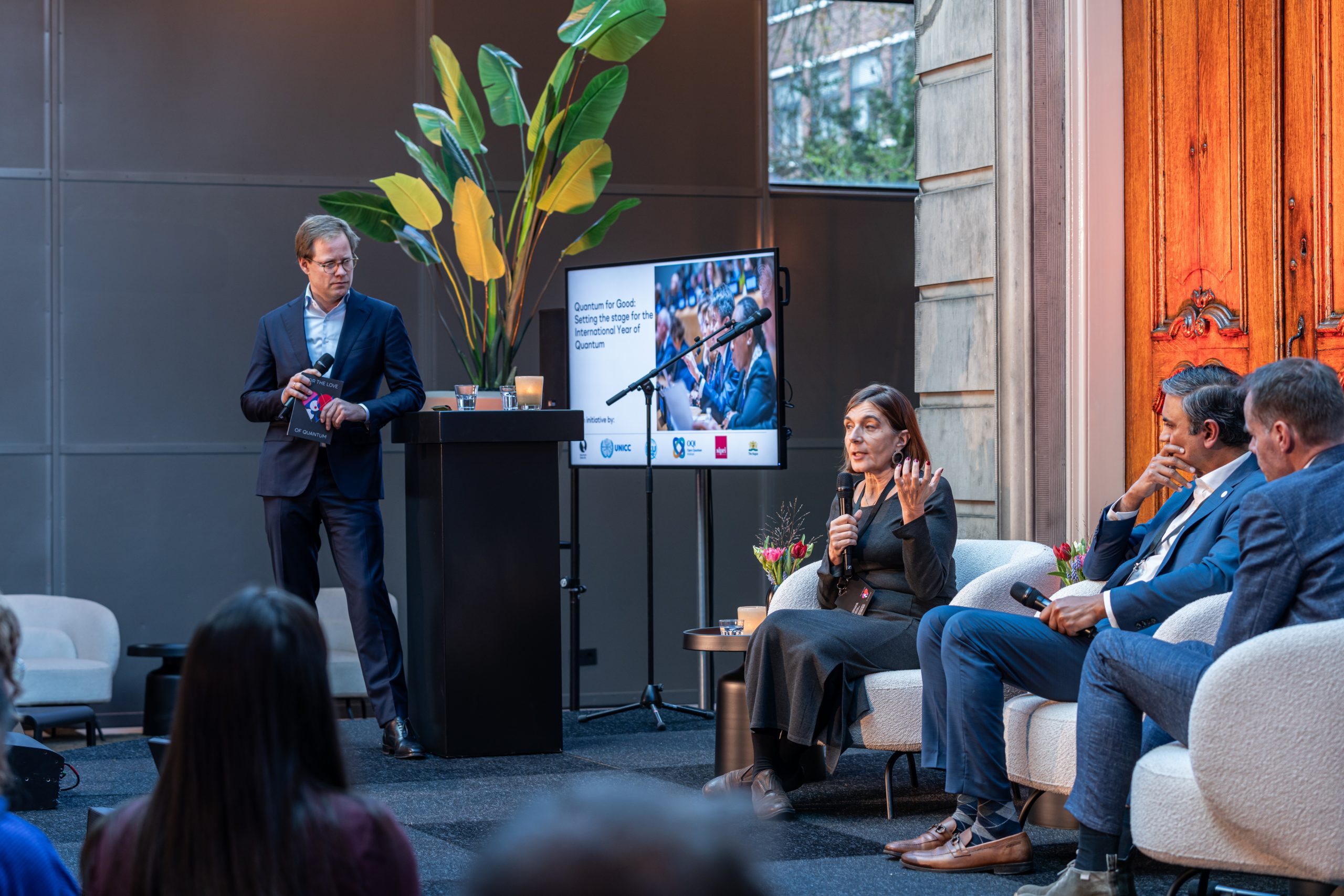
Photos by Marielle van Opbergen, Quantum Delta NL
OQI recently joined forces with Quantum Delta NL (QDNL), UNICC, the International Telecommunications Union (ITU), Stockholm International Peace Research Institute (SIPRI) and the Municipality of the Hague, to organise the Quantum for Good: Setting the Stage for the International Year of Quantum conference, held on 20-21 November to drive dialogue around the development of quantum technology and its impact on society.
The two-day event brought together voices from academia, industry, diplomacy and the private sector, highlighting the importance of fostering multistakeholder involvement and how, together, we can develop inclusive frameworks for quantum technology.
At OQI, we go beyond creating ideas — we are actively working towards developing SDG-focused quantum algorithms, bringing together quantum scientists, subject-matter experts, SDG stakeholders, UN organisations, NGOs and the diplomatic community. We are broadening access to quantum computers through industry partnerships and advancing capacity building to anticipate the impact of the technology and ensure it is accessible and beneficial to all.
In the event’s opening remarks, Enrica Porcari, Head of CERN IT, contributed to a panel discussion underscoring the need for developing accessible technology that benefits society at large, and how this can be leveraged through international collaboration—much like what we are fostering at OQI, working to mitigate the quantum digital divide.
OQI’s Partnership and Engagement Lead at OQI, Martin Gastal, joined Diederick Crose — Director of the Centre for Quantum and Society at QDNL, conference organiser and OQI Advisory Committee member — to explore OQI’s hands-on, impact-drive approach for the future of quantum technology and to discuss in more details OQI’s robust use case pipeline.
The first day also featured deep dives into the governance and regulatory frameworks necessary for ensuring equitable access to the technologies. Discussions identified the opportunities and challenges facing global governance, with involvement from many prominent voices in the OQI community on how we can collectively achieve this.
Day two offered a series of workshops around key themes such as education, water, energy, food security, peace and disarmament, cybersecurity and trade and development—aiming to identify milestones throughout the International Year in 2025. Martin Gastal led the session on water, delving into one of OQI’s advancing use cases working to optimise water leak detection. Discussions explored how quantum simulation can be used to optimally position sensors to detect leaks in urban water systems, with the potential to transform the maintenance and repair of essential urban infrastructures.
The Quantum for Good conference underscored the potential of quantum technology for advancing the SDGs and highlighted the importance of anticipating its impact for global societal benefit. At OQI, we look forward to continuing these partnerships and advancing conversations to shape the IYQ in 2025 and beyond. Discover more about Quantum for Good and about OQI’s advancing use cases.
